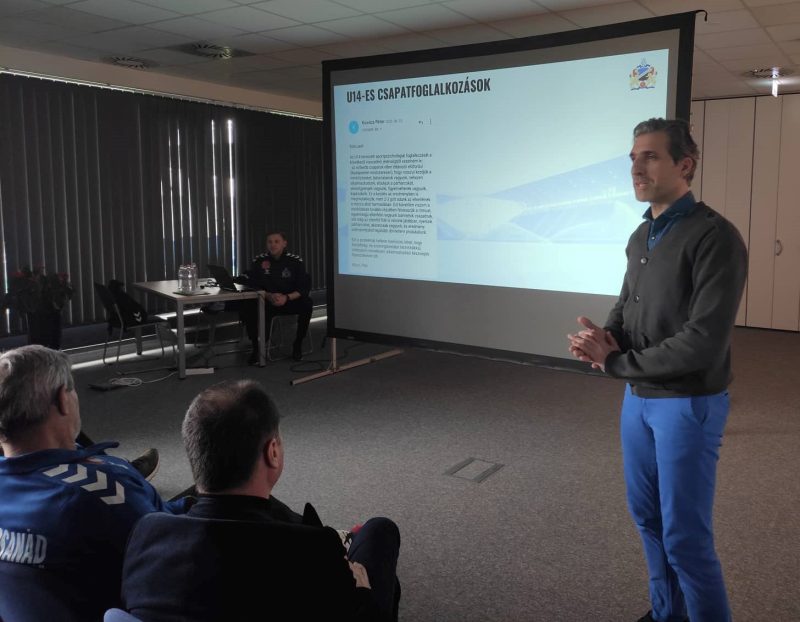Over the weekend, I celebrated with my former MTK teammates the twentieth anniversary of the 2003 NBI football title. It was a good feeling to meet our coach Sándor Egervári, our club director Ferenc Fülöp, Dr. Ákos Füzi, Béla Illés, Roland Juhász and I could list some of the former excellent footballers. As we were talking about the secret of our team's success at the time, a few aspects came up, which also had a sports psychology aspect. I would like to describe them now, as a respectful tribute to our team of that time, but without claiming to be complete.
Gábor Várszegi was the first Hungarian sports leader to apply the football academy system in Agárd. This allowed the young players to concentrate on their studies and football, which helped them to integrate into the adult team. This included playing in the same playing system for the youngsters as the adult team. This allowed the young footballers, who had entered the first team dressing room with a sense of fear, to feel at home on the pitch, experiencing the security of playing in a familiar system.
Besides the professional concept, another important factor was team cohesion. At that time, I was 19 years old when I joined MTK from Újpest. I could feel in the dressing room that the older players were welcoming the young players with fatherly love. If one of the players made a mistake, we supported each other and the focus was on correcting the mistake instead of blaming. There was order and a great atmosphere in the dressing room, which was shown on the pitch. We played disciplined football at the back and creative football up front.
The effective integration process of the young players, the supportive mentality of the more experienced players, the triple unity of order-discipline-creativity on and off the pitch was therefore essential from a mental point of view. This is how we managed to overtake the already strong Ferencváros FC team in the last round, winning the 2002-2003 championship.
Újpest-MTK | 0-1 | 2003. 05. 30 | MLSZ TV Archív – YouTube
I remember, in the last round, the experts gave MTK a minimal chance of winning the title. However, it turned out that we won 1:0 at away to my former team Újpest FC, while Ferencváros FC drew at home with DVSC. When I ran out for the pre-match warm-up, I was welcomed by the Újpest fans with the following banner: "True Újpest FC player will never be forgotten, we welcome you back Levi". It gave me a huge confidence boost because I could feel the love of my foster club supporters. Maybe that also contributed to the fact that I 'closed the door', as they say in goalkeeping circles, and we ended the match without conceding a goal. And of course Roland Juhász's header, who went on to have a fine career at international and national team level. And finally, the TEAM, with all its members.
Thanks for this unforgettable memory to my teammates, our sports managers, our fans and our loved ones!




